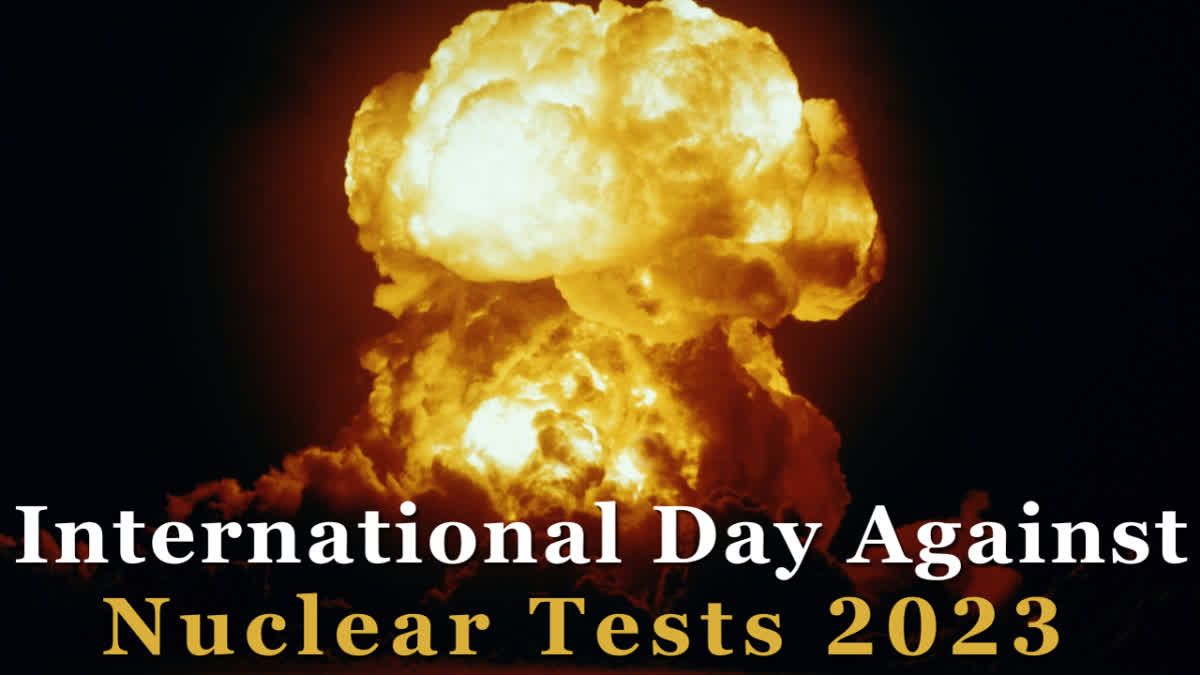Hyderabad: International Day Against Nuclear Tests is observed every year on August 29, to raise awareness about the effects of nuclear explosions. This day serves as a reminder of the catastrophic consequences of nuclear weapons testing and aims to promote a safer, nuclear-free world.
History of the International Day Against Nuclear Tests:
- Declared on December 2, 2009, by the United Nations General Assembly, August 29 was chosen to commemorate the closure of the Semipalatinsk Nuclear Test site on August 29, 1991.
- The day seeks to increase public awareness about the impacts of nuclear explosions and the need to work toward a nuclear-weapon-free world.
- It brings together various entities including the United Nations, Member States, organizations, and media to advocate for the cessation of nuclear tests.
Significance of the Day:
- The International Day Against Nuclear Tests serves as a reminder of the urgent need to prevent nuclear war and its catastrophic consequences.
- Nuclear weapons testing has lasting effects on both human health and the environment, with ionizing radiation causing long-term harm and contamination of air, soil, and water.
- Women and children are disproportionately affected by the negative health impacts of nuclear testing.
- The day promotes the goal of banning nuclear tests, advocating for peace, security, and the elimination of nuclear weapons.
Consequences of Nuclear Weapons Tests:
- Nuclear weapons testing has left a devastating legacy on both humans and the environment, causing cancer, genetic damage, and long-term health issues.
- Radioactive particles contaminate the environment, harming plants, animals, and marine life.
- The force of nuclear tests has resulted in widespread destruction, including the damaging impact on ecosystems and coral atolls.
- Nuclear weapons testing disproportionately harms women and children, leading to birth abnormalities, deformities, and premature death.
Past Nuclear Tests:
- A total of 2,056 nuclear weapons tests have been conducted, with India, the US, Russia, France, UK, China, North Korea, and Pakistan among the countries conducting such tests.
- The first nuclear explosion occurred in 1945, and North Korea was the last country to conduct nuclear testing in 2017.
- There are currently nine countries with confirmed nuclear weapons, with Russia and the United States possessing the most warheads. Russia has the most confirmed nuclear weapons, with 5,997 nuclear warheads. The United States follows behind with 5,428 nuclear weapons
Accidents Related to Nuclear Tests:
- Nuclear accidents such as Chernobyl and Fukushima have had severe consequences, resulting in acute radiation sickness, long-term health issues, and relocation of residents.
- The release of treated radioactive water from the Fukushima Daiichi nuclear power plant has sparked controversy and health concerns.
- The Hiroshima and Nagasaki bombings caused widespread destruction and death, with long-lasting health effects on survivors.
The International Day Against Nuclear Tests serves as a poignant reminder of the urgent need to work towards a world free of nuclear weapons and to prevent the devastating consequences of nuclear testing.
